Introduction
As electric vehicles continue to gain popularity, homeowners are increasingly looking to install charging stations at home, but the process can feel overwhelming. From understanding the different types of chargers to navigating local regulations and incentives, there’s a lot to consider. This guide breaks down everything from assessing your electrical system to selecting the right charger for your needs, ensuring a smooth installation process.
With the right information and professional support, transitioning to an eco-friendly charging solution can enhance both energy independence and convenience, making it easier than ever to embrace sustainable living.
Planning Your Home EV Charging Station Installation
Start by assessing your existing electrical system to confirm it can accommodate an EV station, which generally requires a dedicated circuit. Check the amperage of your electrical panel; many EV chargers require at least a 240-volt outlet.
Next, select an optimal location for the charger—ideally close to where you park your vehicle to minimize cable length. Consider accessibility, proximity to the electrical panel, and protection from the elements.
It’s also important to review local regulations and permits required for installation, as these can vary by city. Additionally, when choosing batteries for energy, consider key factors such as capacity, lifespan, efficiency, and cost to ensure they align with your energy needs.
By understanding your home’s energy needs and the financial advantages of renewable solutions, you can make informed choices that enhance your energy independence.
If you’re seeking expert support, Powercore Electric is ready to assist with your EV power station setup, along with providing panels and battery backups to advance your eco-friendly objectives.
Our installation process includes:
1. A thorough site assessment
2. Necessary electrical upgrades
3. The installation of the power station
4. Rigorous testing to ensure optimal functionality
Ready to take the next step? Contact Powercore Electric today to explore our innovative solar battery solutions and enhance your energy independence!
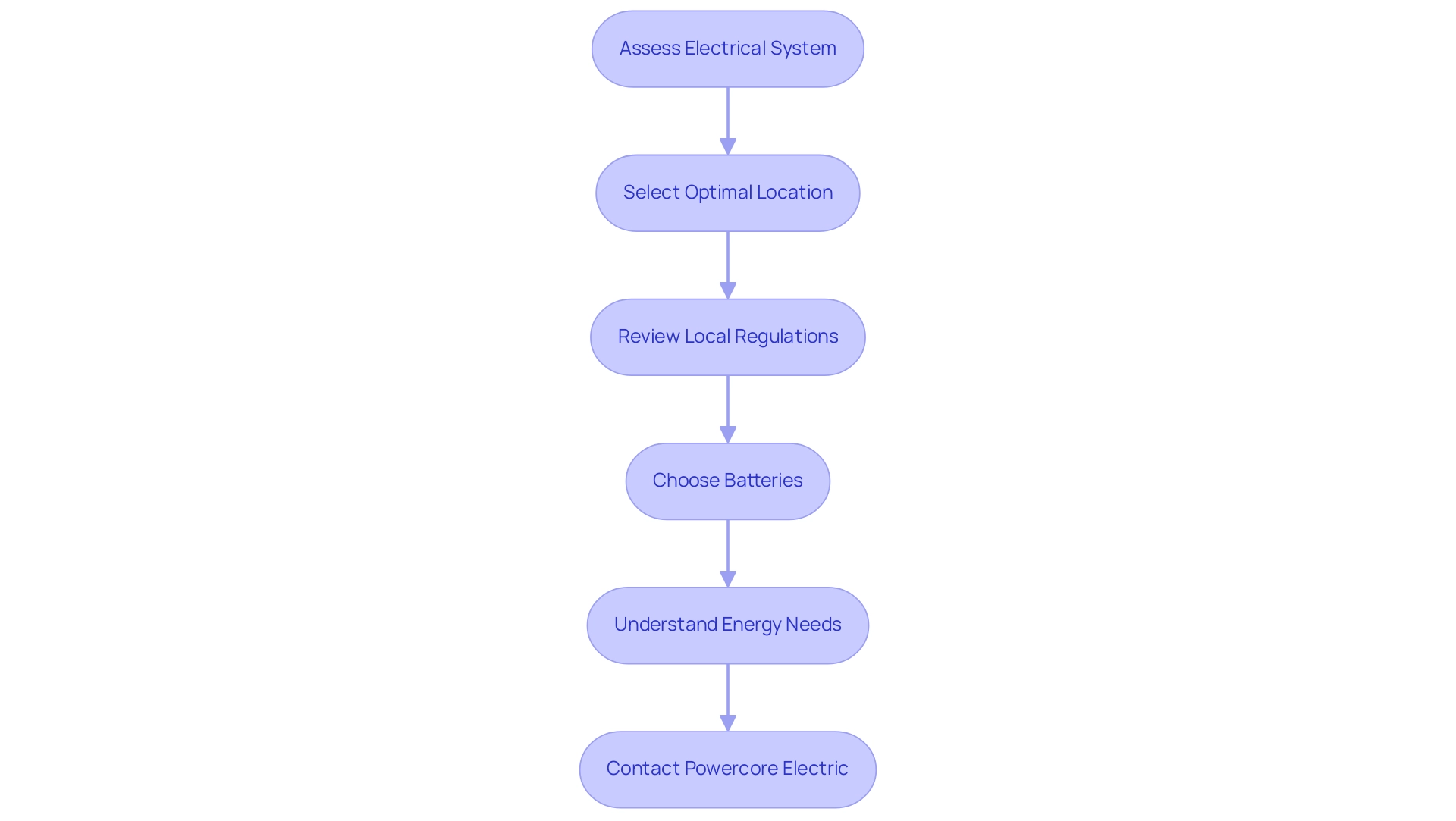
Executing the Installation: Types, Costs, and Professional Services
When evaluating home EV power stations, it’s important to know the three main categories of devices:
- Level 1
- Use a standard 120-volt outlet
- Offer the slowest power option
-
Ideal for overnight use
-
Level 2
- Need a 240-volt outlet
- Most favored option for home setups
-
Provide quicker power-up times
-
DC fast chargers
- Generally reserved for commercial settings
- High costs and specific electrical requirements
The expenses for residential charging units can vary from $300 to $1,200 for the device alone, not including setup. Professional setup may increase costs by another $500 to $1,500, depending on any necessary electrical upgrades. To guarantee a safe and compliant setup, it’s best to hire a licensed electrician.
At Powercore Electric, we take pride in our expertise in electrical services, including EV station installations. Ready to enhance your home for electric vehicle power supply? Contact Powercore Electric at (916) 699-8778 or ryan.serrano@powercoreinc.net today for comprehensive support and guidance tailored to your needs!
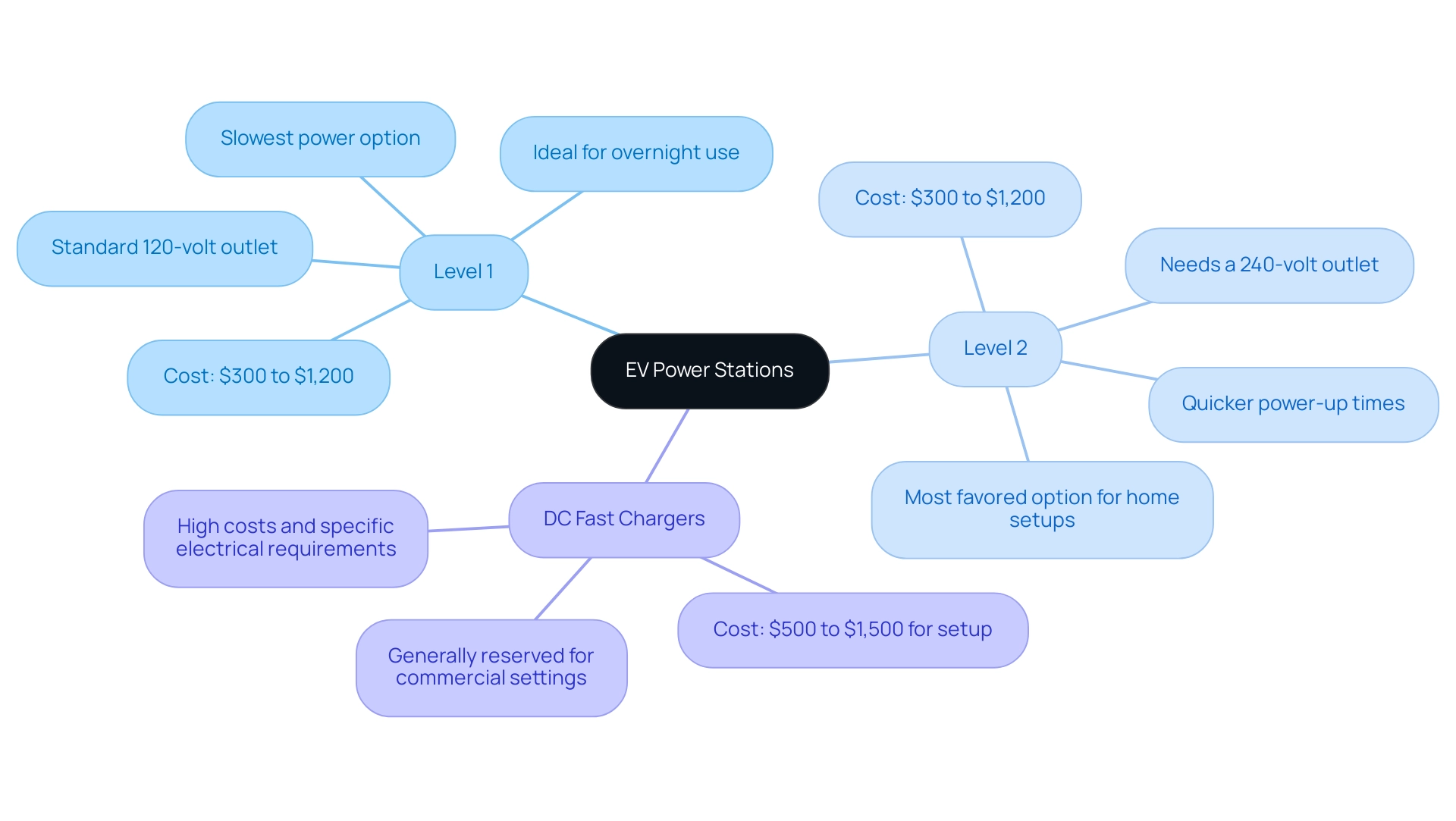
Understanding Electric Vehicle Charging Standards
Electric vehicles typically use one of three power supply standards: J1772, CCS (Combined Charging System), or Chademo. The J1772 standard is prevalent for Level 1 and Level 2 devices and is compatible with most EVs. CCS is primarily utilized by American and European manufacturers for rapid power delivery, while Chademo is preferred by certain Japanese manufacturers.
When choosing your home charger, ensure it is compatible with your vehicle’s power port to avoid any issues down the line. For a seamless installation experience, consider Powercore Electric’s expertise in EV station setups. Our friendly team will conduct a thorough site assessment, handle any necessary electrical upgrades, and ensure your power station meets all safety and regulatory standards.
Additionally, we offer comprehensive services, including solar panels and battery backups, tailored to your home’s energy needs.
Ready to make the switch to sustainable energy? Contact Powercore Electric at ryan.serrano@powercoreinc.net or call (916) 699-8778 today to learn more about our services!
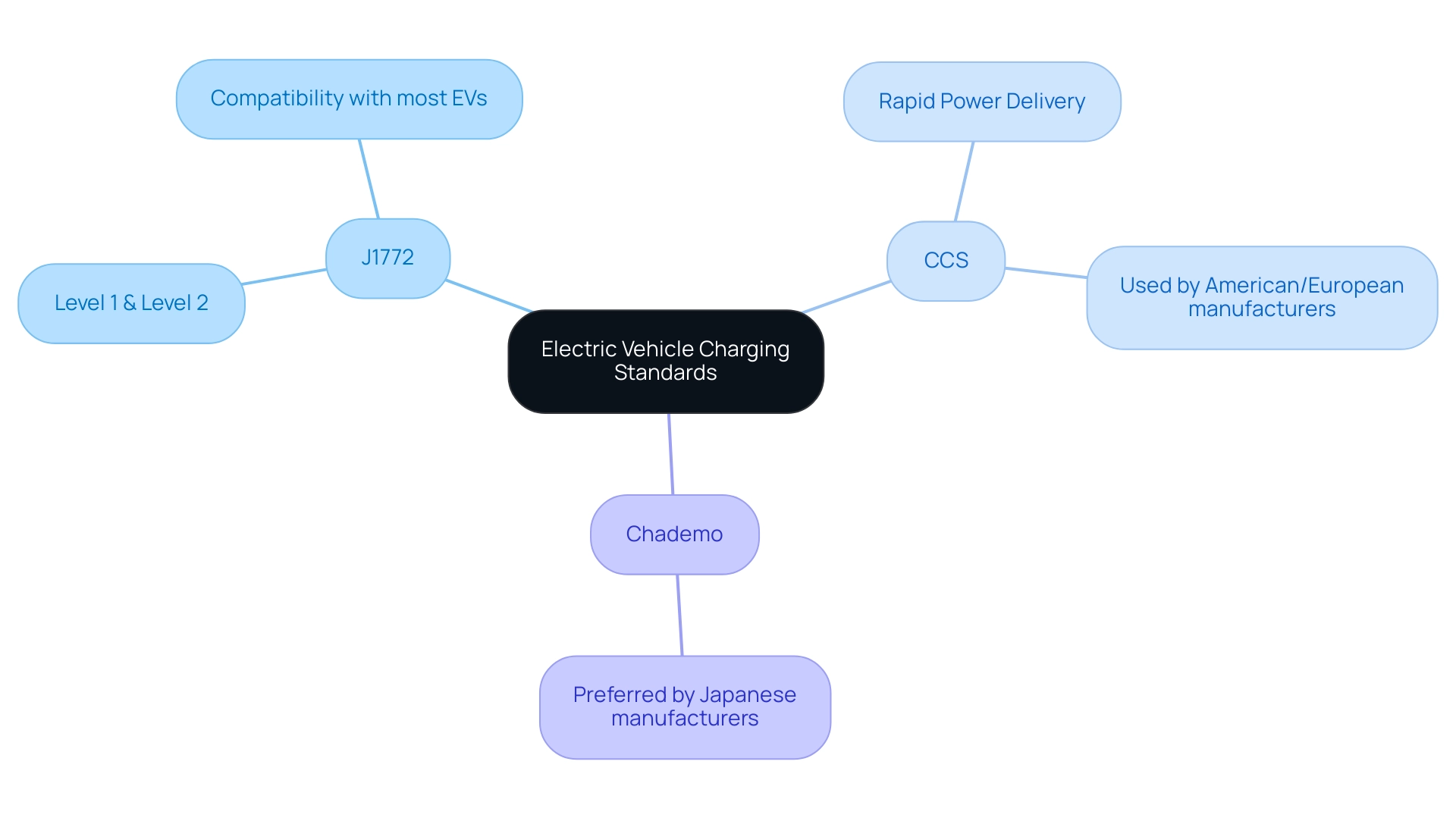
Maintaining Your Home EV Charging Station
To maintain your home electric vehicle power supply, regularly inspect the device and its cables for wear or damage. Ensure that the area around the device is clear of debris and easily accessible. Keep the power port clean and free from dust or moisture, which can interfere with connectivity.
Periodically check for software updates for smart chargers, as manufacturers often release updates to improve functionality and security.
Finally, consider scheduling an annual check-up with a qualified electrician at Powercore Electric, your trusted partner for all electrical needs in Northern California, to ensure everything is functioning correctly and safely.
For inquiries about our comprehensive services, including solar panels, battery backups, and EV power stations, feel free to reach out to us at Ryan.Serrano@powercore Inc.net or call us at (916) 699-8778!
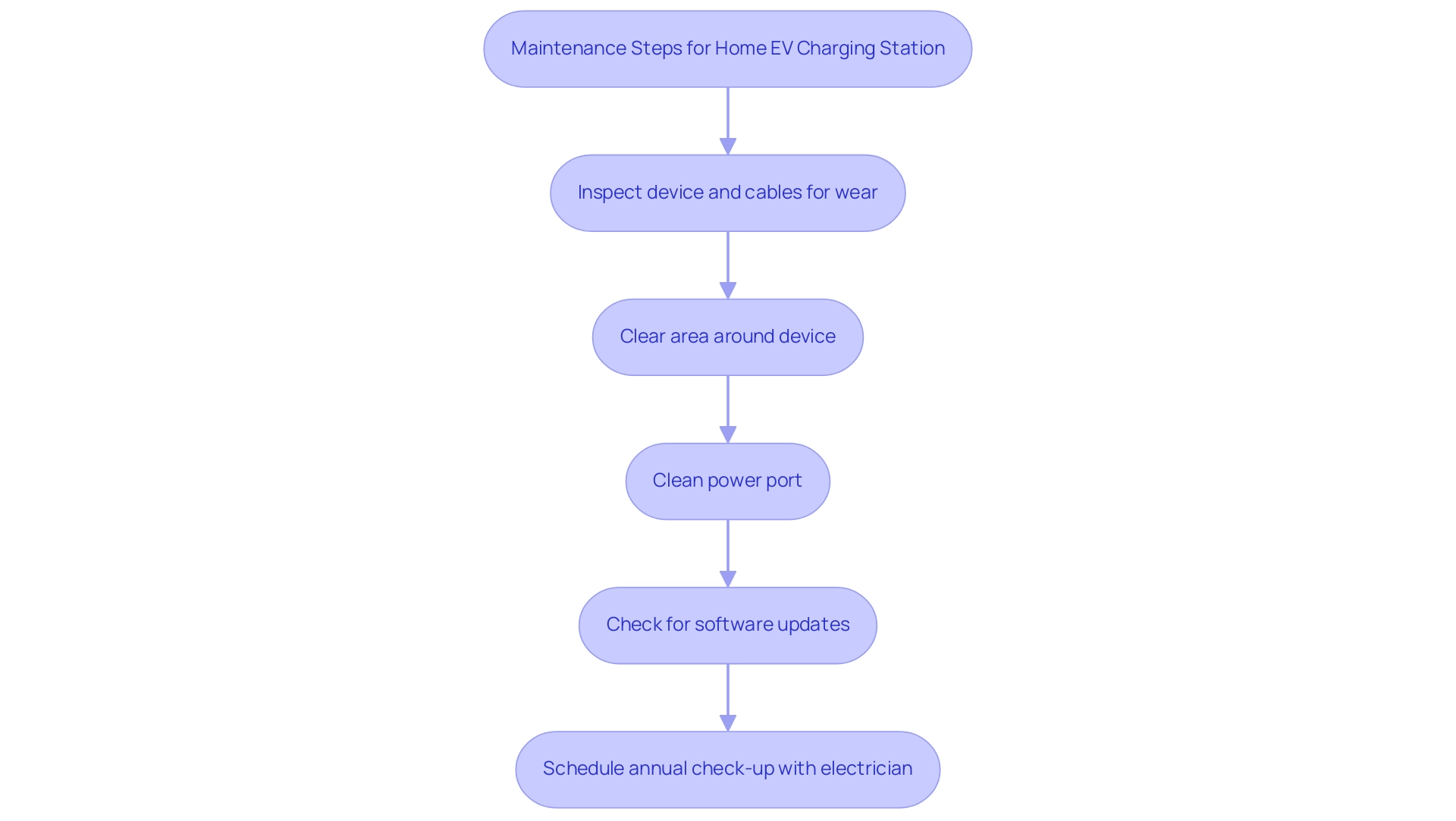
Exploring Incentives and Rebates for EV Charging Stations
Numerous states and local authorities are enhancing support for the setup of EV power stations, offering incentives like rebates, tax credits, and grants. In sunny California, programs like the California Electric Vehicle Infrastructure Project (CalEVIP) offer generous funding for home charging installations, making it easier for you to go green.
Moreover, California’s construction regulations and NEM 3.0 greatly impact renewable energy adoption, offering homeowners increased chances to incorporate alternative energy technologies with their electric vehicles. Don’t forget to check with your local utility company too; they might have additional rebates available for energy-efficient devices or for pairing your EV charging station with a solar system.
Plus, there are federal tax credits that could apply to certain types of EV chargers. By researching and applying for these incentives, you can significantly lower your installation costs while investing in a sustainable future.
At Powercore Electric Inc., we’re here to help you navigate these options and provide top-notch solar panels, battery backups, and EV charging solutions tailored to your needs.
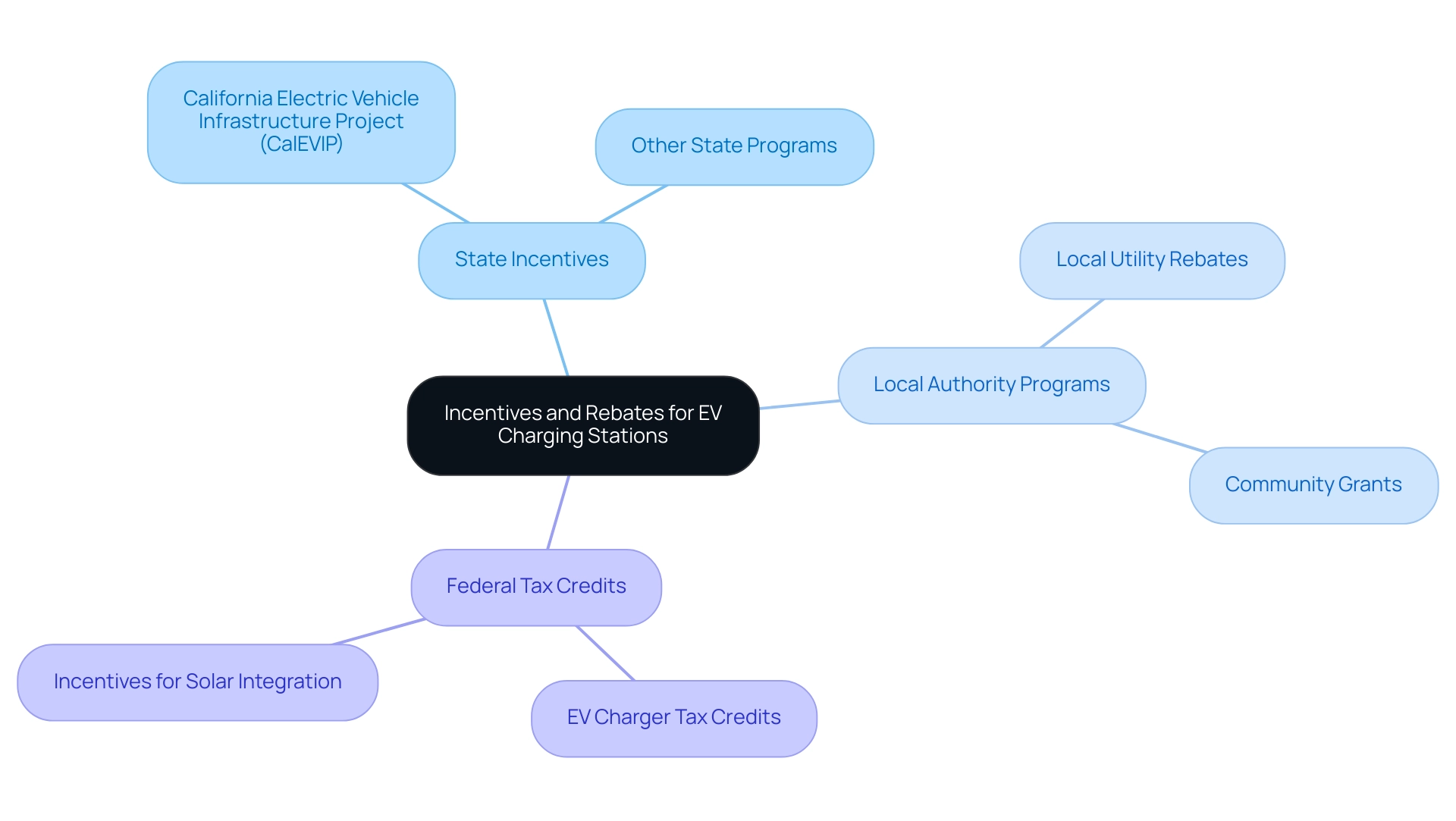
Conclusion
Installing a home EV charging station may seem daunting at first, but breaking it down into manageable steps makes the process much more approachable. From evaluating your electrical system and selecting the right type of charger to understanding local regulations and exploring available incentives, each aspect plays a crucial role in ensuring a successful installation.
Choosing the right charger—whether it’s a Level 1 for slower overnight charging or a Level 2 for quicker power-ups—can greatly enhance your experience as an electric vehicle owner. Additionally, staying informed about maintenance practices and available rebates can help you maximize your investment and enjoy the convenience of charging at home.
With the support of professionals like Powercore Electric, navigating this transition becomes smoother and more efficient. Embracing electric vehicle technology not only contributes to personal energy independence but also supports broader environmental goals. Taking that first step towards sustainable living empowers homeowners to make a positive impact—both in their lives and in the community.
